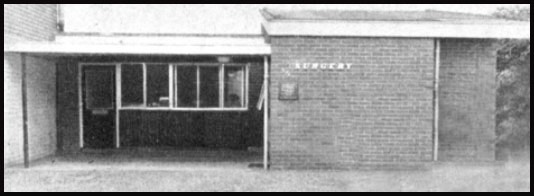
A NOTE ON AN APPOINTMENTS SYSTEM IN
GENERAL PRACTICE
We have been using an appointments system in this practice for some four years, and our experience may be of some interest in view of the recent Press comment on this subject.
Most of the work involved is done by our secretary receptionist, who is in the surgery from 9 to12 pm and from 5 to 8pm.
Patients may book appointments either by telephone or in person during these hours. Consulting hours are 9-11am and 5.30-8pm., appointments are given at five-minute intervals.
During these hours, the patients' names being noted in a suitable foolscap book with a column for each of the two doctors on duty. Thus a fully booked evening would mean thirty patients.
Some patients, of course, take much longer than five minutes; but others can be dealt with in two minutes, so the average of five minutes is fairly well maintained.
For second and subsequent appointments the doctor gives the patient a small printed card on which he writes the date of the next visit; the secretary inserts the time on the card and in her bookas the patient leaves.
For antenatal and other longer consultations the doctor can make an appropriate symbol on the appointment card so that the secretary can arrange a longer period, for example, by bracketing two or three lines together.
Of course there are snags; no one can do consultations by the clock, and there are the inevitable urgent calls and accidents.
Not all patients will bother to make appointments: those who do not, have to wait for a suitable gapin the list. and some of them grumble.
But, taken by and large. the scheme works very well-better than many hospital systems-and is appreciated by the great majority of patients.
None of us would like to go back to the old regime where one would arrive at the surgery to find a queue of twenty or more waiting to be seen-and an unknown number turning up in the next two hours.
One has a fair idea at the start of a session of how many patients are to be seen. and, if one doctor's evening is fully booked, unexpected patients can either see the other doctor or be given an appointment for the next day.
Another advantage for the doctor is that by limiting the number of appointments to be made on any given evening one can be fairly sure of finishing surgery in time to attend the local B.M.A. meeting
From Patients Information Outwood Surgery 1958.